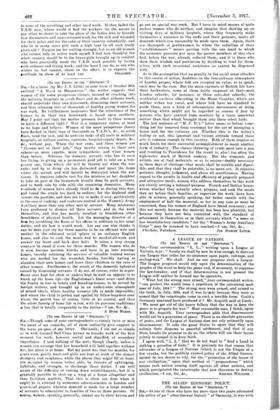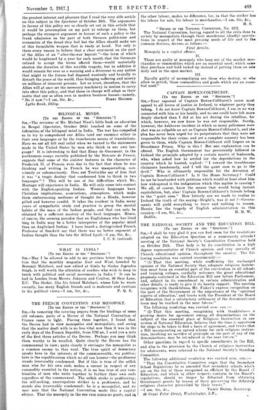the greatest interest and pleasure that I read the very
able article on this subject in the Spectator of October 20th. The arguments in favour of this policy are so clearly net out in this article that it would he presumption on my part to enlarge on them, but perhaps the strongest argument in favour of such a policy is the frank admission on the part of both German politicians and economists of the dread they feel lest the Allies should make use of this formidable weapon that is ready at hand. Not only is there every reason to believe that p clear statement on the part of the Allies of an " after-the-war boycott "—the term of which would be lengthened by is year for each month that the Germans refused to accept the terms offered them—would materially shorten the duration of this terrible tragedy, but in addition it would remain for ever as a warning and a deterrent to any nation that might in the future feel disposed wantonly and brutally to disturb the peace of the world, thus bringing suffering and misery on Millions of innocent persons. Let us truet, therefore, that the Allies will at once set the necessary machinery in motion to carry into effect this policy, and that those in charge will adopt as their motto that one no often seen in modern business houses—namely,















































 Previous page
Previous page